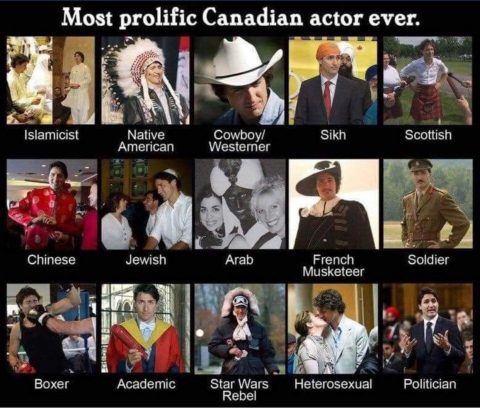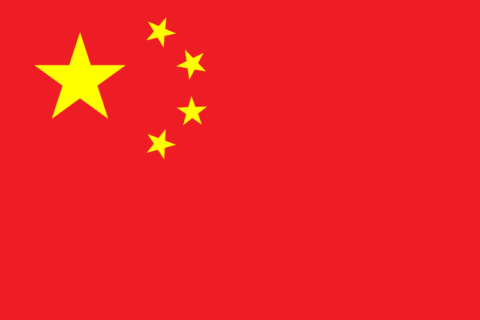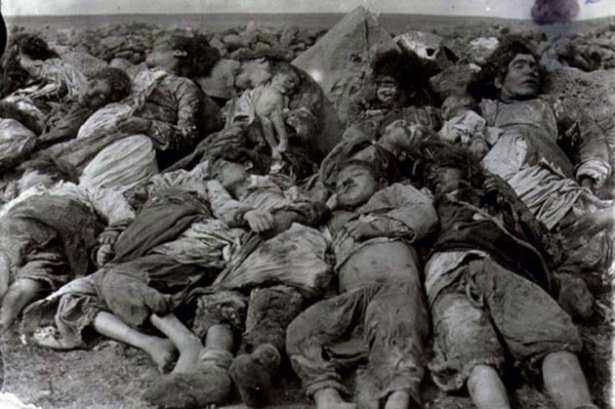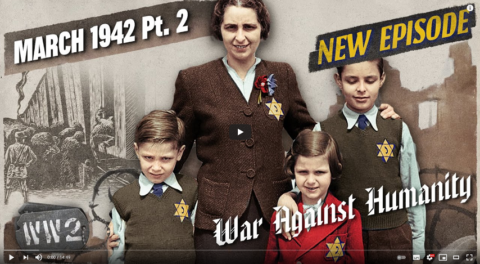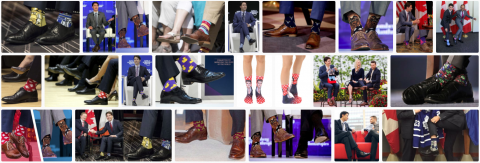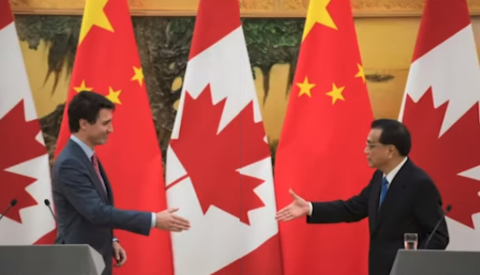Another major structural issue is this: what precisely would our pious anthropology professors have had Europeans do with the New World once they found it?
This is not a joke. Political reality has a way of crashing in on the pipe dreams of liberal academics. The reality is, if the English had not colonised, then the French or the Dutch would have. If the Spanish had not colonised, the Portuguese would have. This would have shifted the balance of power at home, and any European country which had not colonised, would have been relegated to secondary status. And it is easy to overestimate the amount of control that European governments actually had. As soon as the New World was discovered, many fisherman and traders sailed across the Atlantic on their own, in hopes of circumventing tax authorities and scoring a fortune. Long before colonies were established in most regions, the New World was crawling with Europeans whose superior technology gave them an edge in combat. Nonetheless, it was extremely dangerous for Europeans to provoke fights with Native Americans, and most of them tried to avoid this when possible. In retrospect, one could in theory be impressed that so many European governments showed a genuine concern to rein in the worst excesses of their subjects, with an express eye to protecting the Indians from depredation. The logic was simple: they attempted to protect their subjects at home, in order to secure good order and a better tax base. So they would do the same to their subjects in the New World. For a long time, few Europeans harboured any master plan of pushing the Native Americans out of their own lands. In more densely populated regions such as Mexico, such an idea must have seemed an absurdity. Reality tends to occur ad hoc. Boundaries often took generations to move, and would have seemed fixed at the time. For several centuries, many Europeans assumed that they would long be a minority on the North American continent. In Mexico and Peru, they always have been.
Population density mattered, a lot, when it came to pre-modern global migrations. China and India were “safe” from excessive European colonisation because they had the densest populations in the world, and they were likewise largely immune to any diseases brought by Europeans. SubSaharan Africa had a lower population density depleted by slave raiding, but they still outnumbered European colonists by a large margin throughout the colonial era — again because European contact did not decimate their numbers through disease the way it did in the Americas. It is worth noting that no one claims that Europeans committed genocide in India, Asia or even Africa, although their technological advantages gave them every opportunity had they actually been of a genocidal mindset (as were for example the Mongols). In fact, the European track record shows them to be almost shockingly un-genocidal, given their clear technological advantages over the rest of the world for a period of several centuries. Few other civilisations, given similar power over so much of the world’s people, would have behaved in a less reprehensible manner. This is not to give Europeans a pat on the back. Rather it is to point out that Europeans are regularly painted as the very worst society on Earth, when in fact they had the power to do far, far more evil than they actually did. Let us at least acknowledge this fact.
Jeff Fynn-Paul, “The myth of the ‘stolen century'”, Spectator Magazine, 2020-09-26.
January 16, 2022
QotD: Once “discovered”, colonization of the Americas was inevitable
December 31, 2021
Let the Hunger Games Begin – WAH 049 – December 1942, Pt. 2
World War Two
Published 30 Dec 2021The world learns more details of the War Against Humanity in Occupied Poland, while in China and India starvation looms.
(more…)
December 17, 2021
Those Olympic rings are more than just tarnished
In First Things, George Weigel notes the, ah, Olympian disdain for mere morality and human decency is far from a new thing as the IOC prepares for the Beijing games in 2022:
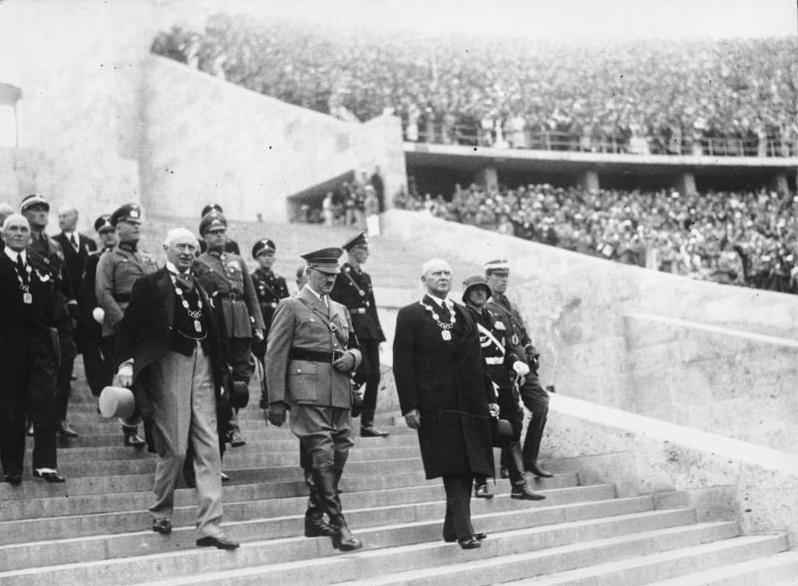
Google translation of the original German caption: “Before the ceremonial opening of the XI Olympic Games. Together with the members of the International and National Olympic Committee, the Führer and Reich Chancellor enters the stadium through the marathon gate. On the left of Adolf Hitler [Henry] Graf Baillet-Latour, on the right His Excellency [Theodor] Lewald.”
German Federal Archives (Accession number Bild 183-G00372) via Wikimedia Commons.
In July 2016, as we were sitting on the fantail of the Swiss sidewheeler Rhone while she chugged across Lake Geneva, my host pointed out the city of Lausanne, where a massive, glass-bedecked curvilinear building was shimmering in the summer sun. “Isn’t that the headquarters of the International Olympic Committee?” I asked. When my friend replied in the affirmative, I said, “I thought I smelled it.”
That rank odor — the stench of greed overpowering the solidarity the Olympics claim to represent — has intensified recently.
Even the casual student of modern Olympic history knows about the August 1936 Berlin Games, at which America’s Jesse Owens, a black man, took four gold medals and trashed Hitler’s Aryan supremacy myth. Fewer may be aware that, in February that year, the Olympic Winter Games were held in the Bavarian town of Garmisch-Partenkirchen. How, we ask today, could two Olympics be held in the Third Reich? How could people not know?
There was some controversy about holding the summer and winter Olympics under Nazi auspices. But in 1936, the German situation was not as comprehensively ghastly as it would become in later years. Yes, the Dachau concentration camp for political prisoners had opened in March 1933, and the Nuremberg Laws banning Jews from German citizenship and prohibiting marriage between Jews and “Aryans” had been enacted in 1935. The horrors of the Kristallnacht pogrom in November 1938 were two years in the future, however, and the satanic Wannsee Conference to plan the “Final Solution” to the “Jewish Question” would come six years later. Clear-minded people ought to have discerned some of the implications of the Nuremberg Laws. But the industrialized mass slaughter of millions, simply because they were children of Abraham, was beyond the imagination of virtually everyone.
So Hitler and his thugs temporarily behaved themselves (sort of) in the run-up to the Garmisch-Partenkirchen and Berlin Olympics. And the International Olympic Committee could salve whatever conscience it had in those days and proceed with the games.
The IOC has no excuses today, two months before the XXIV Olympic Winter Games open in Beijing. Because today, everyone knows.
November 15, 2021
“That is what I like about you Canadians … you are so ready to admit fault. It is a fine, if dangerous, national characteristic. You are all ashamed.”
John E. MacKinnon on the world’s first admittedly genocidal, terminally apologetic, “post-national” state … the entity that used to be known as the Dominion of Canada:
During one broadcast, [late CBC Radio host Peter] Gzowski recalled an incident that had occurred at the annual invitational golf tournament he hosted to benefit adult literacy programs across Canada. As one participant, standing next to Gzowski, leaned thoughtfully on his club, another drove a golf cart over his toes. Although it was unclear from the telling whether the cart-driver was American, the first golfer was obviously Canadian, since, shifting gingerly from foot to aching foot, he could only plead, “sorry”. Gzowski shared this anecdote with evident delight, since it struck him as so endearingly, because emblematically, Canadian.
But Gzowski’s soaring contentment with this view of his country and countrymen was no less emblematic. To Canadian nationalists of Gzowski’s era and ilk, the representative Canadian is no hewer of wood or carrier of water, no builder of bridges, roads and railways, no stormer of barricades or keeper of the peace, but a hobbled guest on a verdant fairway, eagerly apologizing for the pleasure of having his toes crushed. “That is what I like about you Canadians,” says Dr. Gunilla Dahl-Soot in Robertson Davies’s novel The Lyre of Orpheus, “you are so ready to admit fault. It is a fine, if dangerous, national characteristic. You are all ashamed.”
Over the past 200 years, notes Hungarian-born Canadian writer George Jonas, “we have been misled by science. Medicine became our hubris. Having learned to fix appendices, we thought we could fix history.” Today, in Canada, there is no clearer manifestation of this urge to renovate and repair the past than the vogue for apology. And no one has struck this posture of national self-abasement with quite the alacrity of Prime Minister Justin Trudeau. Just months after taking office, he apologized for the Komagata Maru incident in 1914, in which a ship carrying Sikhs, Muslims, and Hindus was sent back to Calcutta, where 20 died in a riot. In 2017, he apologized to Indigenous residential-school survivors in Newfoundland and Labrador, and, just days later, to LGBT Canadians for decades of “state-sponsored, systemic oppression.” A year later, he apologized for the execution, in 1864, of six Tsilhqot’in chiefs over a road-building dispute, and for a government refusal, in June, 1939, to allow into the port of Halifax the MS St. Louis, an ocean liner carrying more than 900 Jews fleeing Nazi Germany. In March, 2019, he apologized for the inhumane manner in which Inuit in northern Canada were treated for tuberculosis in the mid-20th century. Two months later, he exonerated Chief Poundmaker of the Poundmaker Cree, apologizing for the Chief’s conviction for treason more than 130 years before. Still at it in the spring of 2021, Trudeau issued a formal apology in the House of Commons for the internment of Italian-Canadians during the Second World War, even though many, it was subsequently revealed, were indeed hardcore fascists, loyal to an enemy in a time of war. Two weeks later, he lowered the Canadian flag for five months to mark the discovery of the remains of Indigenous children who died at residential schools.
In the midst of this flurry of breathy performances, the BBC asked, with more than a touch of arch obviousness, whether the Canadian Prime Minister might not perhaps apologize too much. And yet, in Trudeau, we simply have the apotheosis of that habit of abject contrition celebrated by Gzowskian nationalists. Under his government, it has become fashionable, even necessary, to apologize, not just for egregious historical episodes or policies, but for the existence of Canada itself. In an interview with the New York Times, Trudeau witlessly described the country that had so favoured him through a lifetime of privilege as “post-national”, suggesting that Canada as we know it had somehow served its purpose, extended itself beyond any warrantable use. And recently, not to be outpaced by more current styles of denunciation, he described Canada, “in all our institutions,” as “built around a system of colonialism, of discrimination, of systemic racism.” When China, responding to criticism of its brutal treatment of Muslim Uyghurs, lashed out at Canada for committing “genocide” against its own Indigenous population and subjecting Asian-Canadians to “systemic racism”, Canada’s political class was in no position to quibble — as its prime minister had already muttered his agreement to the claim that he presided over a genocide state.
This note of cringing repentance now echoes in the pronouncements of all of our institutions. No matter how admired our country may remain internationally, no matter how ardently people around the world long to immigrate here for a chance at a better life, our presumptive leaders are eager to scorn Canada as a meagre and regrettable conceit. That the confessional mode they favour has become so prevalent confirms what Christopher Lasch long ago diagnosed as the strain of narcissism that courses through contemporary culture, lending ready appeal to all such facile gestures of self-reproach. There is, indeed, no cagier career move for any Canadian academic, journalist, bureaucrat, or politician these days than to repudiate Canada, and with feeling.
October 11, 2021
The Line responds to charges that their reporting on China is “anti-Asian racism”
As an impoverished cheapskate, I can’t afford to subscribe to The Line‘s full service, but they do allow a sub-set of their work to appear to non-paying subscribers, like this response to a former subscriber who accused them of “anti-Asian racism” in their posts involving the People’s Republic of China:
China’s emergence as a global power is going to be one of the defining stories of the first half of the 21st century. We probably aren’t reading and writing about it enough. Late this week, however, we received a note from a now-former reader, who said that the pieces we had run, and the overall focus on China, reflected anti-Asian racism, and they would not be supporting us going forward.
Look, it’s your money, folks. We want more and more of you to subscribe all the time. But we certainly respect your right to decline, or to unsubscribe if you don’t like the offerings. However, we do have a word of reply to those who would suggest that publishing articles about China is racist: get bent.
There is indeed anti-Asian racism out there. We have seen a lot of disturbing signs of it during the COVID-19 pandemic, when Asians of any description have been subjected to harassment and even random acts of violence. In the United States, some of the more fiery anti-Chinese rhetoric favoured by the former president also undoubtedly contributed to that wave, and that has spilled over here. Further, the problem of anti-Asian racism of course isn’t new. We have a long history of anti-Asian discrimination in North America. This must be acknowledged. Anti-Asian hate was real before Trump and COVID, and it’ll remain long after both are finished.
But writing critically about the People’s Republic of China, the Chinese Communist Party, the Chinese armed forces, the policies of the Chinese government, the actions of the Chinese government, and the increasingly overt meddling in the affairs of other nations by Chinese intelligence operations, does not reflect any discredit upon Asian-Canadians, or any Asian in general. The policies of the Chinese government are exactly that: policies of a government. Criticizing policies and governments is not just acceptable, it’s absolutely necessary.
Indeed, we noted with grim amusement during a recent conversation with a colleague, who is comfortably nestled within the left-leaning progressive side of Canada’s political spectrum, that progressives in particular ought to be 100 per cent comfortable criticizing Chinese government policy. After all, progressives have been loudly and correctly noting for generations that there is a difference between rank antisemitism and warranted criticism of Israeli government policy. We find it fascinating that some of the very same people who would be horrified to be accused of antisemitism for criticizing Israel get tongue-tied when the Chinese government starts throwing religious minority women into rape camps.
We suspect some of it is simply rooted in the rampant identitarian obsessions of Western political discourse. People who criticize white supremacist Western imperialism a dozen times before breakfast might find it intellectually discombobulating to acknowledge that Western liberal democracies are not the only big baddies on the global stage. We’ve witnessed the many mental gymnastics that have been deployed to minimize or wish away credible reports of genocide and concentration camps, as if they were merely a Western fantasy being used to concoct a pretext for war. This is an ahistoric argument, by the way. The West has not been angling for war with one of its most lucrative suppliers and customers, quite the opposite. Until recently, we’ve operated under a Fukuyama delusion: the ironclad belief that China would moderate and liberalize as it grew more prosperous. This was predicated on the arrogant assumption that the liberal democratic West was the end state of history and that China would eventually meet us here, thus allowing peace and profit for all. That optimism hasn’t panned out, and many Western countries — Canada among them — have spent the last few years trying to reconcile our economic interdependence with our collective “oh shit” epiphany.
October 5, 2021
Chris Alexander – “The truth is that ‘normal’ in the People’s Republic of China, at least since 1959, has never included the rule of law”
Writing in The Line, Chris Alexander (former Minister of Citizenship and Immigration) explains why attempts to “return to normal” in Canada’s relationship with mainland China are foredoomed to failure:
Yuen Pau Woo was joined in these arguments by senators Peter Boehm and Peter Harder, both seasoned diplomats, who also urged Canada to suspend its judgement with regard to China’s persecution of the Uighurs. This includes the use of concentration camps and forced labour, as well as the repression of language, culture and religion. These are all blatant acts committed with the “intent to destroy, in whole or in part, a national, ethnical, racial or religious group”, as the 1951 Genocide Convention defines this “odious scourge”.
Throughout this unfortunate saga, Beijing has had a Greek chorus of supporters across Canada — mostly from people with well-remunerated corporate or political backgrounds — for the preposterous notion of a “prisoner exchange” that would get relations with China back to “normal”.
In the end, the Senate’s genocide motion failed by a vote of 29 in favour to 33 opposed, with 13 abstentions. China’s Foreign Ministry praised Woo, Boehm and Harder as “people of vision” who had seen through the “despicable schemes of a few anti-China forces”. The “clumsy trick of attacking China for selfish political gains” and “the hype of ‘genocide’ in Xinjiang is unpopular and doomed to fail”, the Foreign Ministry spokesperson crowed.
Had Woo, a former president and CEO of the Asia Pacific Foundation of Canada, and the “two Peters”, both former deputy ministers of foreign affairs, voted in favour, the Senate’s genocide motion would have passed. Instead all three chose, on an issue directly threatening the identity and lives of millions, to take the position of the Communist Party of China over one unanimously endorsed by Canada’s elected House of Commons — all in the empty hope of getting back to “normal” with Beijing.
The truth is that “normal” in the People’s Republic of China, at least since 1959, has never included the rule of law. From China’s ferocious and brutal invasion of Tibet that same year, through the murderous Great Leap Forward ending in 1962, to the decade-long Cultural Revolution up to Mao’s death in 1976 (and beyond), China has been a legal void. Serious judicial reforms never featured in Deng Xiaoping’s economic relaunch. On the contrary, basic rights were decimated, as Tibetan, Mongolian, Uighur and other refugees attest.
According to Freedom House, the current General Secretary of the Chinese Communist Party Xi Jinping’s relentless push for all-encompassing surveillance and censorship has made China the worst environment in the world for internet freedom for the seventh year running. Compliance with such global gag orders is enforced by the CCP’s Orwellian digital panopticon, the notorious United Front Work Department, which seeks to browbeat, buy, corrupt, blackmail, extort or otherwise leverage people and firms with connections to China in support of Xi’s agenda.
Thanks to United Front subterfuge, some prominent Canadians still take China’s side, even as Beijing’s favourability score in Canadian public opinion plummeted to 14 per cent, mirroring a worldwide nosedive for China’s image driven by the two Michaels’ ordeal and Beijing’s “wolf warrior” belligerence.
August 12, 2021
The Canadian Historical Association’s “consensus” on genocide in Canada
In Quillette, Christopher Dummitt reports on last month’s declaration by the Canadian Historical Association that not only were past Canadian governments complicit in deliberate genocide against First Nations, but that such mass extermination efforts are current and ongoing:
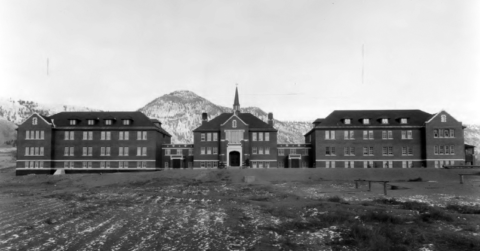
Kamloops Indian Residential School, 1930.
Photo from Archives Deschâtelets-NDC, Richelieu via Wikimedia Commons.
Last month, the Canadian Historical Association (CHA) issued a public “Canada Day Statement” — described as having been “unanimously approved” by the group’s governing council — declaring that “existing historical scholarship” makes it “abundantly clear” that Canada’s treatment of Indigenous peoples amounts to “genocide”. The authors also claimed that there is a “broad consensus” among historians on the existence of Canadian “genocidal intent” (also described elsewhere in the statement as “genocidal policies” and “genocidal systems”) — an alleged consensus that is “evidenced by the unanimous vote of our governing Council to make this Canada Day Statement”.
The authors went further by arguing that both federal and provincial governments in Canada “have worked, and arguably still work, towards the elimination of Indigenous peoples as both a distinct culture and physical group” (my emphasis); thereby suggesting that there is “arguably” an ongoing genocide going on, to this day, on Canadian soil.
The idea that Canada is currently waging a campaign of mass extermination against Indigenous people may sound like something emitted by Russian social-media bots or Chinese state media. But no, this is an official statement from the CHA, a body that describes itself as “the only organization representing the interests of all historians in Canada” — presumably including me.
In fact, there is no “broad consensus” for the proposition that Canadian authorities committed genocide, let alone for the completely bizarre idea that a genocide is unfolding on Canadian soil even as you read these words. And while many of us have become used to such plainly dilatory claims being circulated by individual Canadian academics in recent years, the CHA’s use of its institutional stature in this way was so shocking that it caused dozens of historians to affix their names to a letter of protest.
Notwithstanding what this (or any other) official body claims, the question of whether Canada committed genocide is not a settled issue among scholars. Canada is a relatively small country, home to only a small number of professional historians. And so even this modest-seeming collection of names suffices to disprove the CHA’s claim that it speaks for the entire profession. Moreover, many of those who have signed the letter are senior scholars giving voice to younger colleagues who (rightly) fear that speaking out publicly will hurt their careers.
I am not writing here to defend the actions of Canadian governments toward Indigenous populations. As most Canadians have known for decades, the policy of forcing Indigenous children to attend residential schools led to horrendous cases of sexual and physical abuse. There was also a long history in many schools of refusing to let children speak their native languages or continue their cultural traditions. These were assimilatory, underfunded institutions created and run by people who typically believed that they were doing Indigenous people a favour by “civilizing” them.
What I am addressing, rather, is (a) the question of whether these actions are correctly described with the word “genocide”, and (b) the CHA’s false claim that there is “broad consensus” on the answer to that question. As the letter of protest states:
The recent discovery of graves near former Indigenous residential schools is tragic evidence of what the Truth and Reconciliation Commission (TRC) documented in Volume 4 of its final report — a report that we encourage all Canadians to read. We also encourage further research into gravesites across Canada and support the completion of a register of children who died at these schools. Our commitment to interrogate the historical and ongoing legacies of residential schools and other forms of attempted assimilation is unshaken. However, the CHA exists to represent professional historians and, as such, has a duty to represent the ethics and values of historical scholarship. In making an announcement in support of a particular interpretation of history, and in insisting that there is only one valid interpretation, the CHA’s current leadership has fundamentally broken the norms and expectations of professional scholarship. With this coercive tactic, the CHA Council is acting as an activist organization and not as a professional body of scholars. This turn is unacceptable to us.
Historians are taught to approach their study of the past with humility, on the understanding that the emergence of new documents and perspectives may require us to revise our assessments. Moreover, even if an individual scholar might have strong opinions about a particular historical subject — having become certain that his or her interpretation represents the truth — the community of historians exists in a state of debate and disagreement. We are always aware that two historians sifting through the same archival box of documents can develop very different theories about what those documents mean.
It is true that there are some areas of history that might be fairly labelled as definitively “settled”. But these are few. And even in these cases, consensus typically arises organically, through the accumulated weight of scholarship — not, as in the case of the CHA’s Canada Day stunt, through ideologically charged public statements that seek to intimidate dissenting academics into silence.
July 25, 2021
The plight of the Uyghurs in China
In this week’s excerpt from his full Weekly Dish, Andrew Sullivan considers the Chinese government’s ongoing suppression of the Uyghur minority:
There’s a story in a recent Atlantic memoir by a Uyghur refugee that lingers in the mind. The Chinese authorities in Xinjiang Province now regard the possession of any religious literature, including the Koran, as prima facie evidence of terroristic activities. Terrified Uyghurs in Urumqi, the regional capital, have learned these past few years to quickly dispose of any such items — some throwing out books into the streets overnight so they could not be traced to their households. But one old man in his seventies forgot about a Koran he had possessed, and, coming upon it late, was too scared to hand it over, so threw it into a river. Alas,
the authorities had installed wire mesh under all bridges, and when the mesh was cleaned, the Quran was found and turned over to the police. When officers opened it, they found a copy of the old man’s ID card: In Xinjiang, the elderly have a habit of keeping important documents in frequently read books, so that they are easily found when needed. The police tracked down the old man and detained him on charges of engaging in illegal religious activities. He was sentenced to seven years in prison.
The “prisons” this elderly, devout Muslim was shipped off to now have a capacity of around one million people. They have been built at breakneck speed. Buzzfeed News has found “more than 260 structures built since 2017 and bearing the hallmarks of fortified detention compounds.” The more recent building suggests they are going to become permanent parts of a bid to wipe Uyghur culture from the face of the earth.
The Atlantic story helps you understand how eerily reminiscent this campaign is to the early Nazi-era treatment of Jews, all the way down to the initial disbelief that the genocidal campaign was beginning, to the slow creeping oppression, the sudden new checkpoints and security procedures, the separation of Han and Uyghurs, knocks on the door at night, the attempts of some to escape without detection, and the sudden disappearances of friends, relatives, co-workers — never to be heard of again.
We cannot know for sure what happens inside the camps, but reports from survivors include torture, starvation, force-feeding, solitary confinement, and brainwashing. And in some ways, the entire region is now an open-air prison: security cameras are everywhere, the imprisoned are pressured to incriminate others, police go house to house searching for illicit materials, mosques and neighborhoods are razed, Uyghur language is banned, phones monitored, face recognition technology is ubiquitous. Family members, waiting for their turn to be arrested, leave notes like this one from a husband to his wife:
If they arrest me, don’t lose yourself. Don’t make inquiries about me, don’t go looking for help, don’t spend money trying to get me out. This time isn’t like any time before. They are planning something dark. There is no notifying families or inquiring at police stations this time … I’m not afraid of prison. I am afraid of you and the girls struggling and hurting when I’m gone. So I want you to remember what I’m saying.
It’s important to note that the concentration camps for Muslims in China are not extermination camps. (At least not yet. “They are planning something dark” is not a sentence one ever wants to read.) But it is the greatest, systematic detention of a religious minority since the Second World War, championed by a newly emerged dictator-for-life, Chinese President Xi. And it is not going to stop any time soon.
June 5, 2021
The morality of collective intergenerational responsibility
Arthur Chrenkoff believes that the responsibility to compensate people for historical wrongs ends when the individuals who were harmed have died:
What I was querying was the practicality and the morality of reparations being paid today: “If great-great-grandchildren of perpetrators have to pay great-great-grandchildren of survivors, is there any limit on historical liability? 200 years? 500 years?”
Before we get any further into the discussion, let me restate here my position, which has not changed at all in light of the subsequent online exchanges and name-calling: I do not believe in collective intergenerational responsibility. Far from modern and enlightened, it strikes me as a primitive, ancient principle, in line with the Old Testament’s “an eye for an eye” mentality. Thought to call it Old Testament might be unkind to Old Testament, since already by the time the Book of Ezekiel was being compiled during the Babylonian Exile, mid-first millennium BC, the Judaic theology had morally evolved beyond the belief that the sins of the fathers are visited on their children. We are each a moral agent, enjoying free will and exercising own judgments and actions, and for all that we are rightly held responsible and accountable. But it is unjust to blame (and, at the other end of the spectrum, absurd to praise) us for what our literal and metaphorical ancestors had done or failed to do at one point or another in the past, or what they have collectively achieved.
And so, to the comment that genocide has no statute of limitation, I say: it should, and it should be right about the time that all those who were alive at the time and affected by it have passed away.
The concept of reparations for historical wrongs is increasingly in the news. In the United States, the question revolves around the evil of slavery, but it’s hardly an American-centric debate. In many Western European countries there is talk of reparations for colonialism. Then there is the agitation in Poland, long supported by the ruling Law and Justice party, that Germany should pay Poland reparations for death and destruction caused during the Second World War. While the quantum has sometimes been calculated upward of US$15 trillion, the official suggestions have hovered around the more “modest” €850 billion (1947 estimates in today’s currency).
[…]
Not just genocide – everything that has ever happened, both bad and good, ripples across time and shapes the present. This is what history is about. Each event has an infinite number of causes and an infinite number of consequences. Hence, conceptual problems start popping up once you try to unscramble the egg and make simple adjudications about complex past situations. It’s one thing to make moral judgments about what had happened, it’s another to apply judicial standards used in disputes between contemporaries to met out sanctions and punishment in relations to historical wrongs, which might have occurred centuries ago. For starters, the collective approach to situations where each individual was affected it their own unique way might simplify things but it surely does not paint an accurate picture or deliver real justice. This goes for both the victims and the perpetrators. (At the extreme, for example, potentially forcing the descendants of German pacifists to compensate the descendants of Polish collaborators. In fairness, there were few of either at the time, but most other historical events are significantly more complicated than the black and white story of Nazi aggression and crimes against humanity.)
Which brings me to the second problem: the supposed intergenerational nature of responsibility and punishment. Not only are we talking about entire nations or ethnic (or social or religious or other) groups as monoliths for legal purposes, somewhat akin to a corporation, but also monoliths in time, across an unlimited number of generations. I find it morally odious, but you may well say “well, it’s not about moral blame per se, but whether you have, intentionally or not, benefitted at the expense of past others as a consequence of the evil actions of your ancestors” – in other words, it’s not a punitive but a restorative justice. Putting aside, again, the fact that no two individuals are ever affected in exactly the same way, the past is much more complex than your simplistic unicausal, zero-sum calculations allow and so, consequently, simple justice in theory is simply unjust in practice. Take Germany for example; if you think that Germany and Germans as a collective had benefitted from their rapacious actions during the war, you clearly have little idea what happened to them between, say, 1943 and 1946. You might think, as many did particularly in the immediate aftermath of the war, that this was still not a (collective) punishment enough considering the extent and the gravity of crimes committed (including the Holocaust) but if there was a time to tip the scales even more it was contemporaneously. The point I’m making is that any short-term German gains have been wiped out by the deliberate actions (military or otherwise) of the Allies, who in so doing destroyed much of the native German wealth as well as the wealth stolen by Germany from the occupied territories. That Germany is rich today is despite, not because of the Second World War. And while it’s true that Poland, for example, and at least some of its people are poorer today than they would have been had there been no war, I return back to my original position: how is it just and fair for a 25-year old from Bremen to compensate Poland as a whole (or the Polish government to be exact) for the “ripples” set off six decades before they were even born?
June 2, 2021
How Hitler Manipulated Germany into Committing Genocide – WW2 Special
World War Two
Published 1 Jun 2021In the wrong hands, propaganda is a powerful tool that can trick whole countries into supporting a dictator, go to war, or even commit genocide.
(more…)
March 26, 2021
Fifty Families Murdered Every Hour – WW2 – WAH 031 – March 1942, pt. 2
World War Two
Published 25 Mar 2021A report on the effect of strategic bombing called the “Dehousing Paper” is spread to justify the targeting of the civilian population of Germany. In Poland, one by one, extermination camps are starting construction. This month, a new one is finished, named Belzec. Here, Jews and other minority undesirables from Poland are gassed.
Join us on Patreon: https://www.patreon.com/TimeGhostHistory
Or join The TimeGhost Army directly at: https://timeghost.tvFollow WW2 day by day on Instagram @ww2_day_by_day – https://www.instagram.com/ww2_day_by_day
Between 2 Wars: https://www.youtube.com/playlist?list…
Source list: http://bit.ly/WW2sourcesHosted by: Spartacus Olsson
Written by: Spartacus Olsson and Joram Appel
Director: Astrid Deinhard
Producers: Astrid Deinhard and Spartacus Olsson
Executive Producers: Astrid Deinhard, Indy Neidell, Spartacus Olsson, Bodo Rittenauer
Creative Producer: Maria Kyhle
Post-Production Director: Wieke Kapteijns
Research by: Joram Appel
Edited by: Miki Cackowski
Sound design: Marek Kamiński
Map animations: Miki Cackowski, Eastory (https://www.youtube.com/c/eastory)Colorizations by:
Mikołaj Uchman
Daniel Weiss
Dememorabilia – https://www.instagram.com/dememorabilia/
Julius Jääskeläinen – https://www.facebook.com/JJcolorization/Sources:
Yad Vashem 1935/15, 3016/2, 1137/217, 10094/1, A4613/1116, 3518/7,1554/1
IWM ART 15747 12, HU 56848, MH 24747, CL 2377, ME(RAF) 3703, HU 107752, C 2364, C 4748, C 4743, HU 74904
Bundesarchiv
Graphic of Vickers Wellington bomber, courtesy of Emoscopes https://commons.wikimedia.org/wiki/Fi…
Graphic of Short Stirling bomber, courtesy of Emoscopes https://commons.wikimedia.org/wiki/Fi…
www.auschwitz.org
www.deathcamps.org
USHMM
Picture of scratches on a wall of a gas chamber at Auschwitz, courtesy of Lasy https://commons.wikimedia.org/wiki/Fi…
from the Noun Project: Watchtower by EliriconSoundtracks from the Epidemic Sound:
Johan Hynynen – “Dark Beginning”
Wendel Scherer – “Growing Doubt”
Peter Sandberg – “Document This 1”
Jon Bjork – “Disposal”
Philip Ayers – “Trapped in a Maze”
Fabien Tell – “Never Forget”Archive by Screenocean/Reuters https://www.screenocean.com.
A TimeGhost chronological documentary produced by OnLion Entertainment GmbH.
From the comments:
World War Two
2 days agoOn the horrors of crafting this, on age restriction, and on covering Allied war crimes – by Spartacus
All episodes of War Against Humanity are difficult to make, but this was an especially harrowing episode to host. When I wrote the conclusion based on Joram’s initial draft, I was composed — it was an intellectual exercise still. That changed once I started giving the words a voice, and as you can see at the end of the episode I had difficulties keeping my composure — when I was done I cried bitterly. But that is how it is supposed to be — the totality of our creation is what brings it home, together with Joram I compile the knowledge, Miki or Karo put it into images under Wieke’s direction, and within all of that it is my job to express it in spoken language as best as I can.
Yes, it is difficult to make and it is difficult to watch — but we sincerely believe that none of us should look away lest we forget. We take upon ourselves to spend hours every week to sift through the minutiae of these events so that we can compress it into 15 minutes every two weeks. We do it not for money, not for fame, and not out of pleasure, but because it needs to be done so that others can spend less time on it than us and still see this time for what it was. It needs to be done by neither glossing over any events, nor the images as horrible as they are. This has two important purposes:
1. driving home that this really happened and
2. defeating any claims towards that we’re just making this up, or exaggerating.
Within that responsibility it is also our duty to report, without prejudice, on what the Allies did that was against human values and rights in this war. We don’t do that because there is an equivalence between events, or to create such an equivalence — we do it for the exact opposite purpose — to show the complete picture and preempt any calls for “what about the bombing of Germany and Hiroshima!?” We do it because we are dedicated to the facts, and the events must be permitted to speak for themselves.We’re doing all of this in a time when the horrors of WW2 are ever further away in the rearview mirror, when survey after survey shows that the younger generation have little or no knowledge of how earth-shattering this war was. An indication of a growing educational gap, and in many of the countries where you are watching it has long been decided that reporting on these atrocities is of especial importance. That includes decisions to also expose younger people to the reality of it despite the graphic nature of the content. In most places these images are purposefully excepted from age restrictions that befall content made for entertainment, that is to say they do not fall under an 18+ restriction. They are regulated as PG 16 or the equivalent, in some places even PG13.
It then troubles us deeply that YouTube chooses to go against the decisions made by democratically elected bodies and restrict this content to over 18 only. It troubles us even more when this leads to the inevitable result that our viewership has dropped by 50% since they started doing that. That is a drop far above the share of our viewers that are under age, because with the restriction comes a reduction in recommendation to view — users that are not logged in and age verified don’t get notified — the content can no longer be embedded on external sites — in some countries it is blocked entirely, regardless of your age — and all of that further decreases the value of the video in YouTube’s algorithms. The result is that the War Against Humanity videos are now an echo chamber where we only reach those that already know the content.
We have spoken to YouTube to remedy this fault, but we have had no success thus far. As a result we have decided to start making a censored version of the videos that we will upload if or when they get age restricted. We already upload all of our content to https://odysee.com/@WorldWarTwo:6 but that is not a place where anyone will find our content by chance. On that note we should point out that the videos only get age-restricted because they are reported to YouTube by the community as inappropriate, offensive, or false. We take umbrage at that, because in effect this means that YouTube is helping those who would like these events to be forgotten, or even deny that they ever happened. It’s a pity; even morally wrong in my viewpoint. It leaves me despondent and the last weeks have been extraordinarily difficult for me — I have questioned my purposes and wondered why I put myself and our team through all of this, if all we’re doing is preaching to the choir. At first it left me sad, but after YouTube’s glib, bureaucratic responses I got depressed. I considered throwing in the towel, but then I would be nothing else than a coward refusing to stand for those who no longer have a voice. So, I will continue, I will resist, and we will fight against anyone that tries to silence us and the dead — because we must not look away, we must never forget.
Spartacus
It is only because of the TimeGhost Army that we can go forward in this battle — join us at https://www.patreon.com/TimeGhostHistory or at Timeghost.tv
March 24, 2021
Eichmann: Mass Murderer or Train Conductor? – WW2 Biography Special
World War Two
Published 23 Mar 2021Adolf Eichmann was one of the masterminds behind the “Final Solution of the Jewish Question”. Or was he? In his trial, he argued to be merely a bureaucrat who was following orders. This episode attempts to shine a light on the real role of this controversial figure.
Did 90 Minutes Decide the Fate of the Jews? – The Wannsee Conference – WAH 027 – January 1942 Pt. 2: https://www.youtube.com/watch?v=Hd1gH…
Join us on Patreon: https://www.patreon.com/TimeGhostHistory
Or join The TimeGhost Army directly at: https://timeghost.tvFollow WW2 day by day on Instagram @ww2_day_by_day – https://www.instagram.com/ww2_day_by_day
Between 2 Wars: https://www.youtube.com/playlist?list…
Source list: http://bit.ly/WW2sourcesHosted by: Spartacus Olsson
Written by: Spartacus Olsson, Joram Appel
Director: Astrid Deinhard
Producers: Astrid Deinhard and Spartacus Olsson
Executive Producers: Astrid Deinhard, Indy Neidell, Spartacus Olsson, Bodo Rittenauer
Creative Producer: Maria Kyhle
Post-Production Director: Wieke Kapteijns
Research by: Joram Appel
Edited by: Karolina Dołęga
Sound design: Marek KamińskiColorizations by:
Daniel Weiss
Spartacus Olsson
Mikołaj UchmanSources:
– Yad Vashem: 3887/1, Y69EO4_, 1605/1431, 102co3, 76/68, 4229/59, 29/56, 73GO3_, 74AO9_, 1922/6, 2749/3, 2986/71, 4229/61, 03/198, 4613/789, 73AO6, 1572/17,
– United States Holocaust Memorial Museum
– Bundesarchiv
– Icons from the Noun Project: freight car by Evgeni Moryakov, School by Adrien Coquet, Watchtower by Eliricon
– Picture of Frontkämpfervereinigung in 1925 courtesy of Wienbibliothek im Rathaus, Tagblattarchiv Fotosammlung, TF-999034
– Picture of Wannsee villa courtesy of JoJan from Wikimedia Commons
– Library of CongressSoundtracks from Epidemic Sound:
– “Rememberance” – Fabien Tell
– “Deviation In Time” – Johannes Bornlof
– “Last Minute Reaction” – Phoenix Tail
– “It’s Not a Game” – Philip Ayers
– “Moving to Disturbia” – ExperiaArchive by Screenocean/Reuters https://www.screenocean.com.
A TimeGhost chronological documentary produced by OnLion Entertainment GmbH.
February 27, 2021
Profiles in Cowardice — Justin Trudeau
Matt Gurney on how Prime Minister Justin Trudeau’s latest act of moral cowardice probably won’t hurt him at all in the polls:
It has been fascinating to watch the reaction to Prime Minister Justin Trudeau’s profile in non-courage this week, after he and most of his cabinet skipped a vote on a Tory motion seeking to declare China’s brutal campaign against the Uyghur people a genocide. (Marc Garneau, who was probably desperately wishing he was back in low-Earth orbit, showed up to abstain … because that’s a good use of an astronaut.) If there is anything close to a consensus on the matter, it’s that the PM was in a difficult spot and found a way to slither out of it at the cost of some dignity, but no other real loss.
Kaveh Shahrooz, in a piece here at The Line on Thursday, made that case well. He savaged Trudeau for his hypocrisy — “when the chips were down, the [gender-based analysis], the intersectional lens and the feminist foreign policy were tossed aside in favour of appeasing China,” he wrote — but he also noted that the entire affair won’t really hurt the PM. “Sadly, the worst that will happen to Trudeau because of the hypocrisy and incompetence displayed is some angry tweets and a few articles like this one,” said Shahrooz.
Maybe. But maybe not. Shahrooz and others are certainly right that the prime minister won’t pay an electoral price, and probably won’t see his polling waver. But history makes its own judgments. And I suspect this prime minister is more aware of that than most.
It seems a long time ago now, but in his first term, Trudeau made a habit of apologizing. Only rarely for stuff that he was actually himself responsible for — he’s kinda averse to doing that. But formal and public apologies for past failures? He was all over those. In 2018, the BBC even ran a piece noting the PM’s habit, and asked in the headline, “Does Justin Trudeau apologize too much?”
It’s not that there weren’t things worth apologizing for. In 2016, he apologized for Canada turning back the Komagata Maru, a ship carrying mostly Sikhs that was then forced to return to India, where 20 of them were killed in a riot. The next year, he apologized to survivors of residential schools in Newfoundland and Labrador, and to LGBT Canadians for discrimination they faced at the hands of the federal government. The next year, Jews and members of the Tsilhqot’in Nation received apologies for historical wrongs inflicted on them. And so on. It was a thing.
A man who so clearly adores taking a stage to shed a few tears while acknowledging wrongs committed by someone else, long ago, probably can’t avoid wondering who, in a hundred years, will be apologizing to Uyghurs for his refusal to clearly state that what is happening to them is a genocide.
February 20, 2021
Confessed genocidal nation refuses to accuse China of genocide
Jen Gerson considers the moral smallness of Canadian government wiggling out of labelling China’s treatment of their Uyghur minority as the genocide it certainly is:
This week, the Prime Minister of an admittedly genocidal G7 state refused to condemn China for its treatment of its minority Uyghur population. A treatment that has included family separation, forced sterilization, and warehousing thousands of people in what can only be described as modern concentration camps.
Justin Trudeau failed to condemn China, noting, quite rightly, that genocide is an “extremely loaded” term. One not to be bandied about lightly. It demonstrates some moral cowardice on his part, certainly, but also a degree of pragmatism. Canada’s squeaky and lonely objection would do little good. We’re already in a vulnerable position, what with the ongoing captivity of two Canadians who remain in Chinese detention as an act of retaliation for our arrest of Huawei executive Meng Wanzhou. A declaration of genocide in this case is probably better handled by a collection of nations. As long as we can live with the shame of the smallness that such an argument implies.
(Although perhaps it was unwise to pin so many of our early hopes of an early vaccine rollout on a doomed collaboration with a Chinese manufacturer with a vaccine backed by China’s Institute of Biotechnology and its Academy of Military Medical Sciences. Who could have predicted we would run into problems with such a notoriously reliable and honourable global partner that occasionally engages in hostage diplomacy? But I digress.)
The real issue with Trudeau’s grovelling little deflection on the question of Chinese genocide is that it made his own position on the subject not two years ago impossible to ignore in comparison. The final report of the Missing and Murdered Indigenous Women and Girls inquiry stated that the truths it uncovered in the process of its years-long investigations:
… tell the story — or, more accurately, thousands of stories — of acts of genocide against First Nations, Inuit and Métis women, girls, and 2SLGBTQQIA people. This violence amounts to a race-based genocide of Indigenous Peoples … This genocide has been empowered by colonial structures, evidenced notably by the Indian Act, the Sixties Scoop, residential schools, and breaches of human and Inuit, Métis and First Nations rights, leading directly to the current increased rates of violence, death, and suicide in Indigenous populations.
Several pundits at the time noted at the time that this stretched the definition of “genocide” beyond ordinary recognition. “Genocide” is not the result of a set of compounding government failures over time: it’s a word that we reserve to describe a discreet set of acts motivated by the deliberate intent to decimate or totally exterminate an ethnic population. But after a day or so of hemming and hawing on the issue after the report was released, our prime minister noted: “The issue that we have is that people are getting wrapped up in debates over a very important and powerful term … We accept the finding that this was genocide, and we will move forward to end this ongoing national tragedy.”
There was some careful phrasing in this response. Note, Trudeau agreed that this was genocide, not that it is genocide. The prime minister dodged the implication that Canada is engaged in deliberate ethnic cleansing. But it’s worth peeling back the skin of the onion, past the obvious and easy allegation of hypocrisy, and instead ask ourselves why?
Why can we get away with calling ourselves a genocidal state, but not China?
October 30, 2020
“We Burn” – The Road to Srebrenica – Sabaton History 091 [Official]
Sabaton History
Published 29 Oct 2020Srebrenica in the summer of 1995. The road to the bloodiest massacre since the end of the Second World War was paved by the violence that followed the breakdown of Yugoslavia. A series of wars and brutal atrocities accompanied the individual struggles for independence as old ethnic and nationalist hatred resurged. The Bosnian Serbs who followed the leadership of politician Radovan Karadžić and General Ratko Mladić sought to separate themselves within Bosnia. However their views soon radicalized and Kradazic began to advocate for a Serbian ethno-state utopia, free of the Muslim Bosniaks. And he was willing to use extreme violence to achieve it.
Support Sabaton History on Patreon: https://www.patreon.com/sabatonhistory
Listen to “We Burn” on the album Attero Dominatus: https://music.sabaton.net/AtteroDomin…
Listen to Sabaton on Spotify: http://smarturl.it/SabatonSpotify
Official Sabaton Merchandise Shop: http://bit.ly/SabatonOfficialShopHosted by: Indy Neidell
Written by: Markus Linke and Indy Neidell
Directed by: Astrid Deinhard and Wieke Kapteijns
Produced by: Pär Sundström, Astrid Deinhard and Spartacus Olsson
Creative Producer: Maria Kyhle
Executive Producers: Pär Sundström, Joakim Brodén, Tomas Sunmo, Indy Neidell, Astrid Deinhard, and Spartacus Olsson
Community Manager: Maria Kyhle
Post-Production Director: Wieke Kapteijns
Editor: Karolina Dołęga
Sound Editor: Marek Kaminski
Archive: Reuters/Screenocean – https://www.screenocean.comVisual Sources:
– Library of Congress
– Portrait of Slobodan Milosevic courtesy of Stevan Kragujevic with the approval of daughter Tanja Kragujevic
– Icons from The Noun Project: Arrow by Dolly Holmes
– Pictures from Siege of Sarajevo, Portrait of Mladić & Karadžić and more courtesy of Mikhail Evstafiev
– Photograph of execution in Brcko in 1992 – Photograph provided courtesy of the ICTY
All music by: SabatonAn OnLion Entertainment GmbH and Raging Beaver Publishing AB co-Production.
© Raging Beaver Publishing AB, 2019 – all rights reserved.

